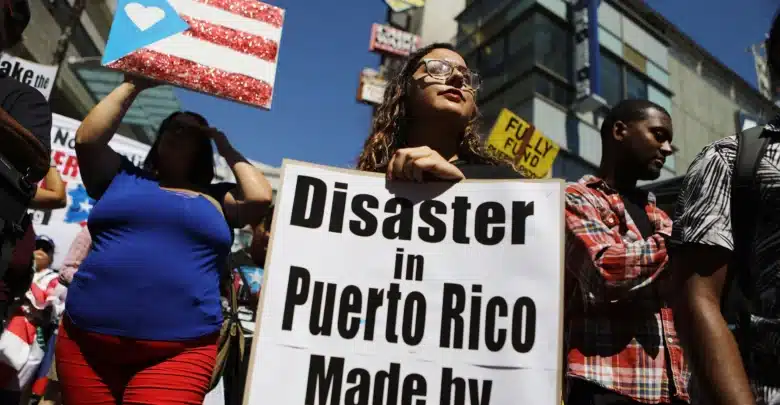Profiting from Chaos: The Dark Side of Disaster Capitalism Unveiled

When calamity comes knocking, whether it’s a flood submerging a town, an earthquake shattering lives, or a pandemic upending social order, the public`s first and foremost concern is the well-being of those affected. Emergency response units go into overdrive, governments pledge relief funds, and communities join hands to lift each other. Yet, behind the veil of humanity and benevolence lies a murky reality often overlooked: the phenomenon known as ‘Disaster Capitalism.’
What Exactly is Disaster Capitalism?
In layman`s terms, Disaster Capitalism is the exploitation of crises to introduce and enforce free-market reforms that are impossible or readily accepted under normal circumstances. While the world’s attention is fixated on survival and recovery, specific private interests see this chaos as fertile ground to enact policies that would usually trigger public uproar. They don’t just find a silver lining in calamity; they weave it themselves, usually at the cost of public welfare.
The Unwritten Playbook of Crisis Profiteering
The operational playbook for Disaster Capitalism is more predictable than one might think:
Emergency Response Profiteering: Specialized corporations offering disaster response services could hike prices to absurd levels, capitalizing on the pressing need for immediate solutions.
Asset Grabs: Valuable public assets like land, utilities, or even strategic companies are auctioned or sold off to private parties at bargain prices, masked by the urgency of raising funds.
Policy Reengineering: Legislations around deregulation, tax reforms favoring the rich, and the dilution of labor protections are swiftly moved under the guise of ‘economic revival.’
Privatization Surge: Essential public services, water supply, electricity, healthcare, or education get outsourced to private corporations. This usually leads to increased costs for consumers and reduced accessibility.
Resource Exploitation: Environmental norms are relaxed or overlooked, providing a carte blanche to corporations to extract natural resources without accountability for the environment or local communities.
When Has Disaster Capitalism Struck?
Hurricane Katrina: In the aftermath, not only were public housing and schools privatized, but a labor law was also suspended to lower wage standards for reconstruction projects.
2008 Financial Crisis: Banks and big corporations got bailouts without strings attached. Meanwhile, austerity measures scaled back public services, heaping more difficulties onto everyday people.
COVID-19 Pandemic: Vaccine procurement and distribution have been hotbeds for profit-making, while essential medical supplies saw skyrocketing prices. The wealthy, meanwhile, grew more prosperous thanks to lucrative contracts and relaxed regulations.
Ethics vs. Capital: Is There a Right Way?
The crux of the issue isn’t necessarily that corporations make money during or after a crisis. After all, they, too, provide essential services and jobs. The ethical dilemma arises when these entities manipulate the lack of governance and social disarray to push for self-beneficial policies without public discourse or democratic procedures.
The Global Perspective: Beyond Borders and Boundaries
Disaster Capitalism is not confined to any nation; it is a global phenomenon transcending borders. Consider, for instance, how international corporations and organizations can manipulate the economic vulnerabilities of countries facing disasters to secure beneficial trade agreements.
Natural disasters or political upheavals in developing countries are sometimes leveraged by wealthier nations and multinational corporations to gain control over valuable resources or to open new markets for their goods. This form of neo-colonialism exacerbates existing inequalities between nations, making it even more challenging for struggling countries to break free from cycles of dependency and poverty. The ramifications are local and contribute to global instability, economic disparity, and social unrest.
How to Combat Disaster Capitalism
Awareness is the greatest weapon. Be vigilant about policy changes proposed under the cover of crisis. Keep governmental and corporate actions in check by demanding transparency and public accountability. Support advocacy groups fighting for a ‘Just Recovery,’ focusing on equitable treatment and social justice.
In our contemporary world, where wealth and power imbalances seem almost intractable, understanding and acting against Disaster Capitalism is increasingly vital. Instead of letting crises become lucrative loopholes for the privileged, let’s work to ensure they become catalysts for collective action, empathy, and genuinely democratic change.
Tokenhell produces content exposure for over 5,000 crypto companies and you can be one of them too! Contact at info@tokenhell.com if you have any questions. Cryptocurrencies are highly volatile, conduct your own research before making any investment decisions. Some of the posts on this website are guest posts or paid posts that are not written by Tokenhell authors (namely Crypto Cable , Sponsored Articles and Press Release content) and the views expressed in these types of posts do not reflect the views of this website. Tokenhell is not responsible for the content, accuracy, quality, advertising, products or any other content or banners (ad space) posted on the site. Read full terms and conditions / disclaimer.





